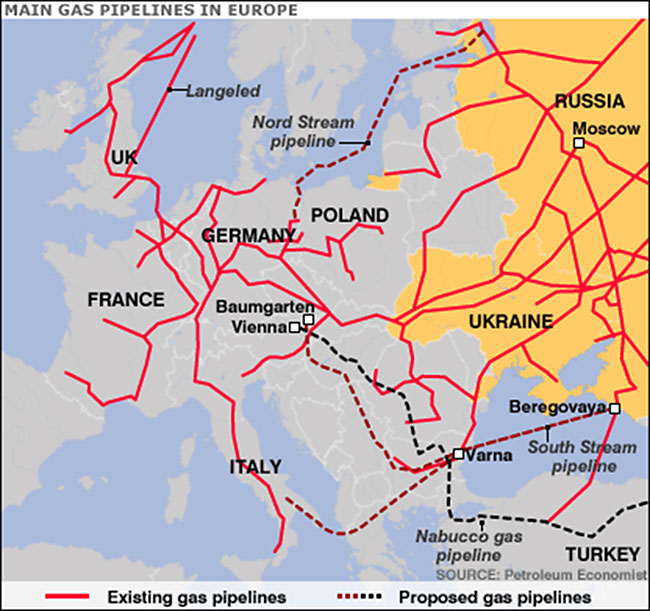The cessation of Russian gas supplies would cause a severe recession in Eastern Europe and Italy, if countries around the world decide to accumulate their own limited reserves, the International Monetary Fund warned on Tuesday, in an attempt to encourage solidarity between states, informs Financial Times.
According to this publication, the IMF predicts that if liquefied gas is not shared and prices are not kept artificially low, any action by Russia to stop supplying Europe with natural gas would trigger an economic contraction of more than 5% next year in the Czech Republic, Hungary, Slovakia and Italy.
Earlier, Reuters revealed that the Russian group Gazprom recently sent a letter to several European customers invoking the “force majeure” clause for the inability to deliver the agreed natural gas to them due to extraordinary circumstances that are beyond its control. In addition, European Budget Commissioner Johannes Hahn said on Tuesday that the EU executive does not expect resumption of deliveries through the Nord Stream 1 pipeline after ten days of maintenance work, which is scheduled to end on Thursday, according to Agerpres.
About 42% of EU gas imports come from Russia, according to the IMF, but in eight EU member states Russian supplies account for more than 50% of gas imports.
European gas consumption has already fallen by 9% this year, removing 0.2 percentage points from the European Union’s GDP, according to the IMF, but simulations by the financial institution show that without compensatory measures, the damage could be much older in winter. Next week, Brussels officials would ask member states to reduce gas consumption “immediately”.
According to IMF calculations, the European economy could face a 70% reduction in Russian gas supplies, but problems would arise in the event of a complete shutdown of supplies. The most affected European countries would be able to access deliveries 15 to 40% below their needs. Hungary, Slovakia and the Czech Republic have a high degree of use of Russian gas, while Italy is vulnerable due to the increased use of gas in electricity production.
